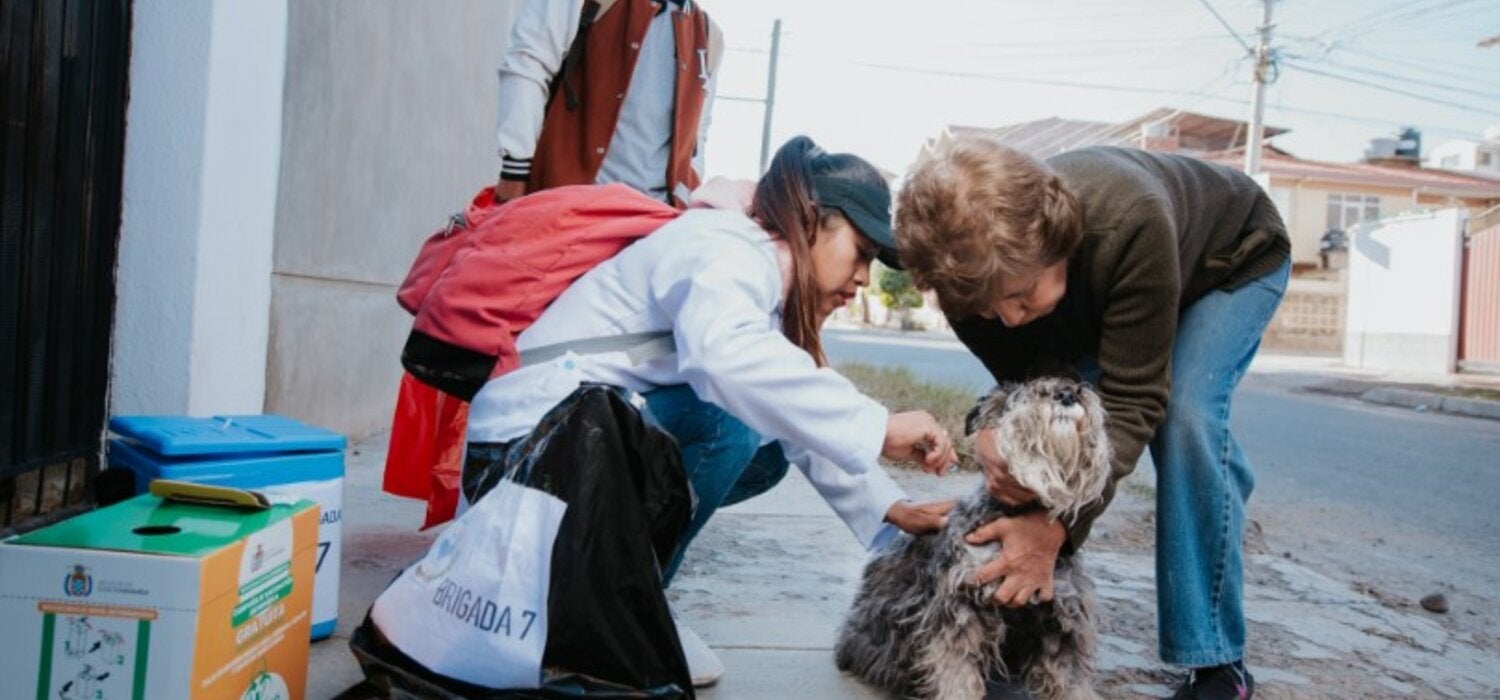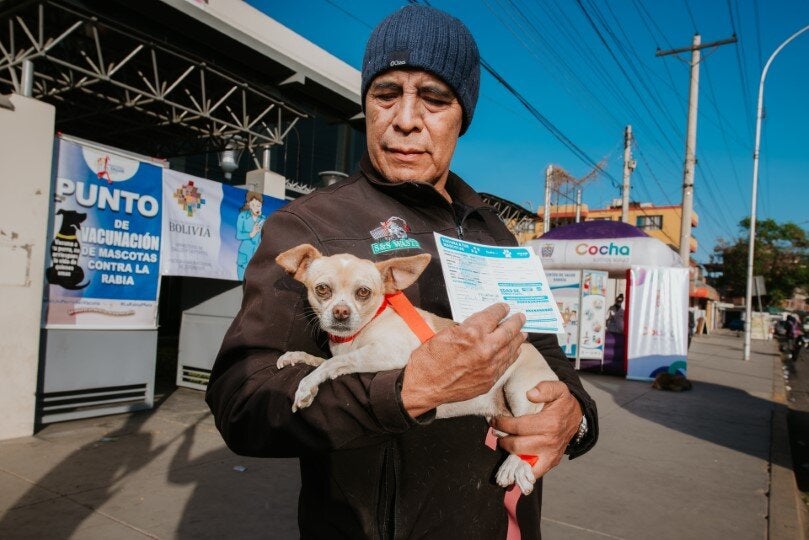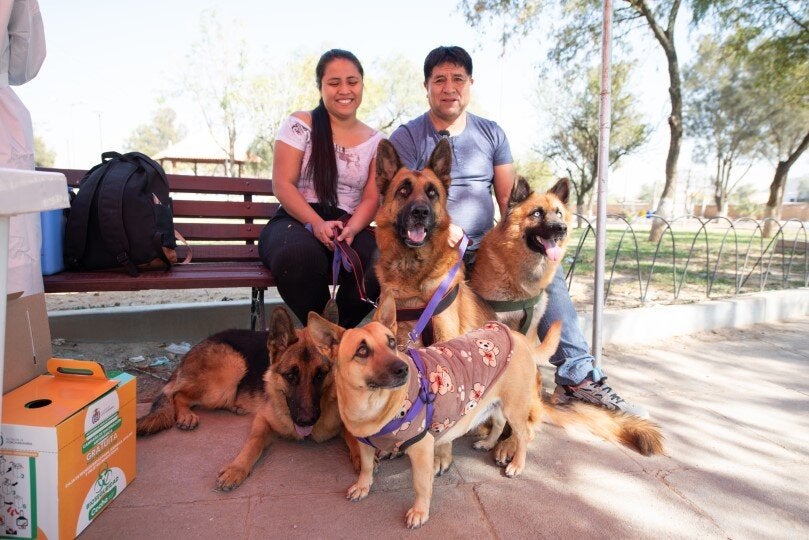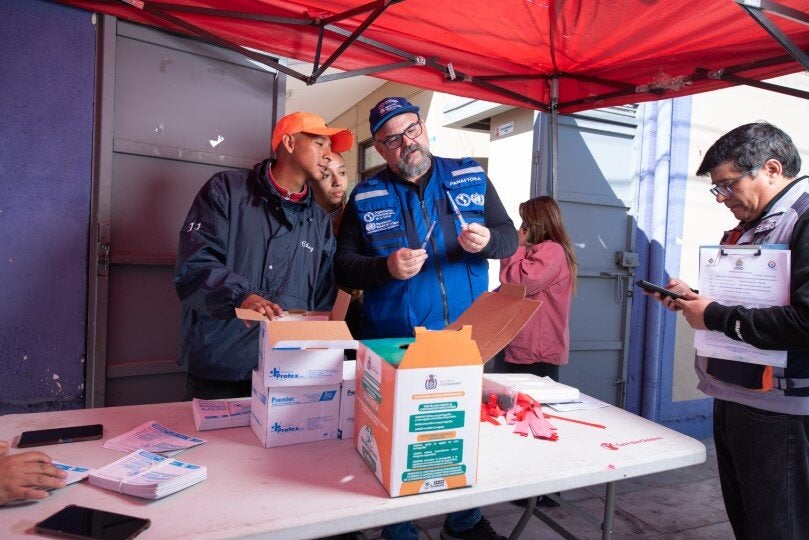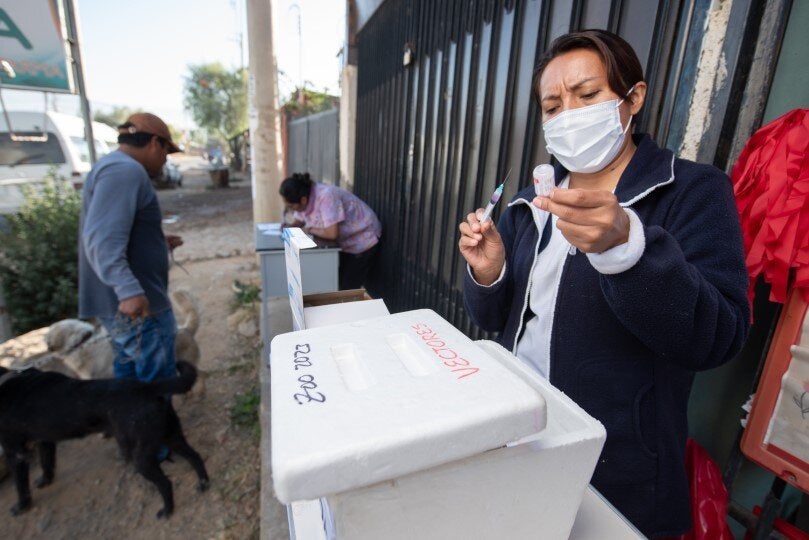Isabel Lifonso, who lives in the community, stressed the need for vaccination: "Stray dogs in the streets are a risk; If someone is bitten, they could get this serious disease." Education and communication are essential to raise public awareness about rabies, its risks, and the importance of responsible pet ownership.
Marco Vigilato, regional zoonosis advisor at PANAFTOSA, emphasized that "without community engagement, it is impossible to have a successful campaign".
At the end of the campaign, assessments were conducted to ensure that no animal was left unvaccinated. "Rabies is 100% fatal, but also 100% preventable by vaccination," Vigilato said, reaffirming the hope for a future without canine rabies.
Gabriel's story and his dedication to protecting his dogs is just one example of a broader collective commitment. Thanks to collaboration between communities, government, and international organizations, Bolivia continues to move forward in the fight against rabies, charting a path towards a safer future for pets and people.

